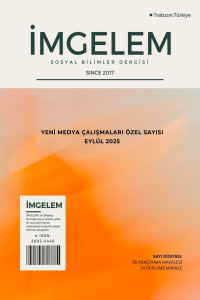Research Article
Review
Issue Editorial Board
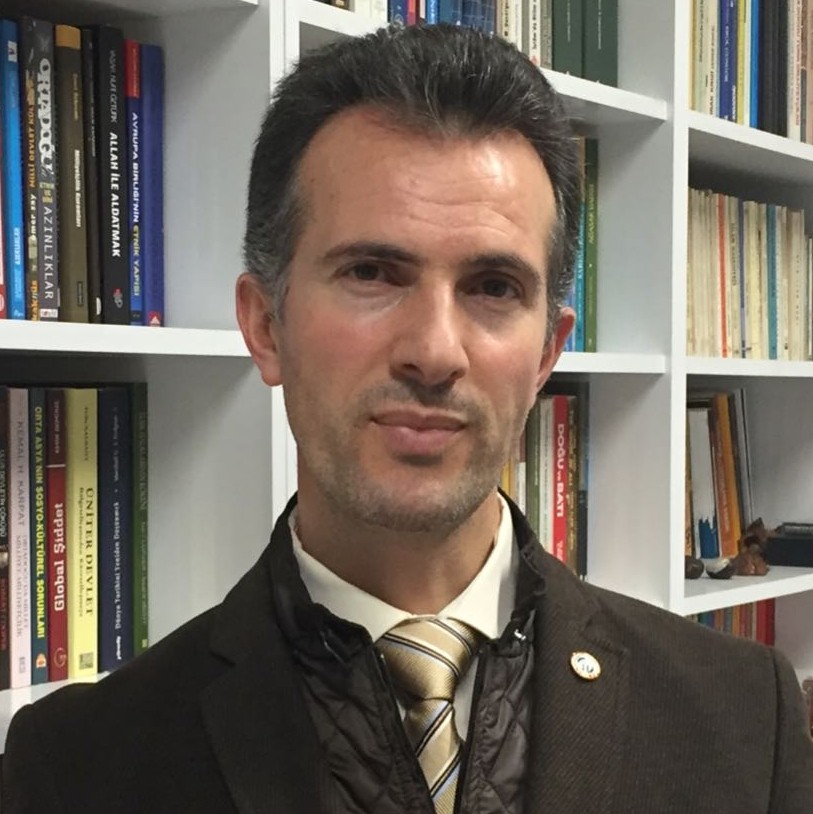
He was born in 1976. His family is originally from Trabzon/Çaykara county, Karaçam (Yukarı Ögene) Village. He received his primary and high school education in Bayburt, and his university education in Istanbul and Istanbul University. He completed his Master's (2000) and PhD (2006) studies in the Department of Sociology at the Social Sciences Institute of the same university, Department of Social Structure-Social Change.
In 2006, he started to teach Sociology at Karadeniz Technical University, Faculty of Economics and Administrative Sciences. Four years later, he transferred to the Faculty of Letters, Department of Sociology of the same University. At this stage, he went to the USA as a visiting researcher in the Department of Ethnic Studies at the University of Colorado, with the Postdoctoral Research Scholarship of the Higher Education Institution, to conduct research on the ethnic composition, immigration and integration of America, and he also studied the Meskhetian Turks in Denver. He carried out a seven-month theoretical and field study involving Upon his return to Turkey at the end of 2010, he was appointed as the head of the Sociology department and for four and a half years following this date (February 2016), he carried out the basic establishment processes of the department, such as the formation of the academic staff and the approval of the undergraduate and graduate student admission files by HCI (High Commission Institute).
In the period of July-September 2013, with a six (6)-month overseas research scholarship provided by Karadeniz Technical University and for three months during the summer break, as a visiting researcher, International Islamic University, Department of Sociology, in the capital city of Malaysia, Kuala Lumpur. He carried out a theoretical and ethnographic study in During this time, he had the opportunity to examine the tension between the Nation-State and Ethnic differences and possible solutions on Malaysia, theoretically, ethnographically and practically.
Between March 4 and July 31, 2017, he received a TÜBİTAK Post-Doctoral Research Scholarship for five months at the University of Birmingham in England, one of the world's leading experts in his field, a lecturer in the Department of International Relations and Political Scientist Prof. Dr. He went to this university with the invitation of Stefan Wolff and Prof. Under the supervision of Wolff, he conducted a theoretical study on the subject of "Kurds in Turkey and the Middle East".
In October 2021, again with TÜBİTAK's post-doctoral research scholarship abroad, for 8 months (he paid the remaining time for a year in total), the director of the Center for Turkish Studies, an institution of Duisburg-Essen University, He went to Germany at the invitation of Professor Hacı Halil Uslucan. Under the consultancy of Uslucan, he conducted a quantitative and qualitative diaspora study titled "The Formation of the Turkish Diaspora in Germany", whose data were collected from 300 people, members and volunteers of 52 Turkish associations in Duisburg and Essen.
On August 6, 2023, with an unpaid research assignment, he went to Tashkent, the capital of Uzbekistan, to conduct social structure, culture, folklore and ethnography studies. His work here continues.
Focusing on the sub-disciplines of Sociology, Urban Sociology, Economic Sociology, Political Sociology and Ethnic Sociology, the author's book, City and Society, consists of his doctoral thesis, as well as a monograph in Malaysia and a monograph in which he examines the Contracting profession in Trabzon, and geo-political in which he examines the concept of Patriotism in Trabzon. There are five copyrighted works including monographs and 17 edition book works that he edited. Alptekin is also the editor of HABITUS Journal of Sociology, as well as TR Indexed IMGELEM Journal, and the founding president of the BİLGİTOY Association, the umbrella organization that publishes these journals. Published in various national and international journals, more than 70 English in the context of Global urbanization trends, Urban Transformation, Capitalism, ethnic structure of the Middle East, social integration process in the European Union, nationalism, nation building, migration, diaspora, nation state and ethnic differences. and Turkish articles, book chapters and papers. He still continues his academic activities in the Department of Sociology at KTU and gives undergraduate and graduate courses focused on Political Sociology.
Issue Reviewers

İstanbul Üniversitesi Tıp Fakültesi mezunu. Hacettepe Üniversitesi Çocuk Sağlığı ve Hastalıkları ile Pediatrik Hematoloji ihtisasları yaptı. Anadolu Üniversitesinden Sosyoloji ikinci Lisans eğitimini onur derecesi ile tamamlayıp, Conley American University de Siyaset Bilimi Doktorası yaptı. Hacettepe Üniversitesinde Başhekimlik, Enstitü Müdürlüğü ve Rektörlük yapmıştır. 10 yılı aşkın süre Sağlık Bakanlığında Kanser Savaş Dairesinde Başkan olarak çalışmış Ulusal Kanser Programımızı hazırlamıştır. 500 den fazla makale ve sunumu vardır. 20 nin üzerinde kitabı vardır. Hacettepe Üniversitesinden emeklidir. Ankara'da AnkaPedia da emekli olarak çalışmalarına devam etmektedir.


Samsun doğumludur (1977). Lisans öğrenimini 1999’da Marmara Üniversitesi Atatürk Eğitim Fakültesinde tamamladı. 2001’de Almanya’ya gitti, dil eğitiminden sonra Köln Üniversitesine devam etti. 2010 yılının sonunda yurda döndü. Ondokuz Mayıs Üniversitesi Sosyal Bilimler Enstitüsünde “Ortaöğretim Gençliğinin Kimlik Oluşumunda Aile, Din ve Medyanın Etkileri” başlıklı teziyle yüksek lisansını (Mart, 2014), “Çokkültürlülük ve Entegrasyon Tartışmaları Bağlamında Üçüncü Kuşağın Kimlik Algısı ve Din: Köln Örneği” başlıklı teziyle doktorasını tamamladı (Aralık, 2018). Ocak 2020-Temmuz 2024 tarihleri arasında Erzincan Üniversitesi Fen Edebiyat Fakültesi Sosyoloji Bölümü Toplumsal Yapı ve Değişme Anabilim Dalı'nda Dr. Öğretim Üyesi olarak görev yaptı. 2021’de yayımlanan Göç ve Sonrası/Avrupa Bağlamında Kavramsal Çözümlemeler ve 2022’de yayımlanan Kalanların Gözünden Avrupa’da Alevilik Topluluk-Kimlik-Farklılaşma başlıklı kitapları dışında ulusal ve uluslararası kitaplarda yazdığı bölümleri, dergilerde yayımlanmış makaleleri bulunmaktadır. 2024 Temmuz ayında Samsun Üniversitesi İlahiyat Fakültesi Felsefe ve Din Bilimleri Bölümü Din Sosyolojisi Anabilim Dalı'nda göreve başladı.
Akademik çalışma alanları: Avrupa Müslümanları, kültürel karşılaşmalar, göç, kimlik, sekülerleşme, post-kolonyalizm ve genç dindarlığı.
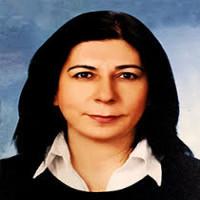
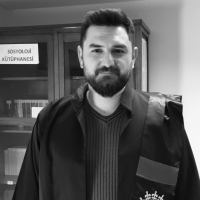

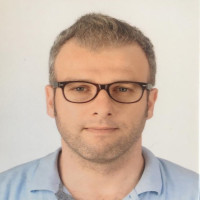

I graduated from Eskisehir Osmangazi University with 3.57/4.00 GPA, which qualifies me for the top 1% in the field of International Relations. Between the years 2015 and 2019 I had the opportunity to improve myself on many subjects both in and out of the field by participating in various social activities. In the context of the Model United Nations event held in our university in 2017, I represented the country of Finland in the United Nations Development Program Committee and actively participated in the discussions on global problems and the resolution of these problems. In the Model United Nations event organized by Bilkent University in January 2018, I represented Spain in the Committee for Social and Economic Relations Development and learned about the current situation of Spain and tried to find solutions to the problems that have been experienced around the world. I had the opportunity to obtain information from primary sources about the relations between Turkey and the Kingdom of Denmark with visiting the Ambassador of Denmark, Mr. Svend Olling. At the Turkey-Switzerland Relations Conference held at Eskişehir Osmangazi University, with the participation of Swiss Political Attaché Julien Briguet, I had the opportunity to learn about the developments in many fields such as economy, politics and culture between the two countries, and by being his guide, I had the opportunity to learn about diplomacy and political science and also I benefited from his experience. In June and July 2018, I went to Romania to voluntarily teach English to children aged 7-15 years and the United Nations 17 Sustainable Development Goals as part of the social responsibility project of the AEISEC non-governmental organization. I did not start an academic career in Romania, however, thanks to the gains I have made here; I have both created a deep conceptual analysis of Romania-Turkey relations and actively participated in the realization of the UN Missions. On March 4, 2019, I acted as a reporter at the meeting held in Eskişehir on International Women's Day with the slogan "From Beijing to the Present, From Today to the Future" and made a detailed presentation on the related issue and included the solution of the problems. This interest has peaked when I have been nominated for a scholarship provided by the Ministry of Foreign Affairs of Taiwan to study Chinese for the duration of six months between September 2019 and February 2020. By participating in the Internship/Training Program organized by the Foreign Policy Institute,
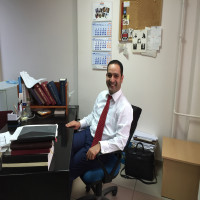

LİSANS: SELÇUK ÜNİVERSİTESİ / İLETİŞİM FAKÜLTESİ / GAZETECİLİK BÖLÜMÜ (2005-2009)
YÜKSEK LİSANS: LEFKE AVRUPA ÜNİVERSİTESİ / LİSANSÜSTÜ EĞİTİM, ÖĞRETİM VE ARAŞTIRMA ENSTİTÜSÜ/ İLETİŞİM BİLİMLERİ ANA BİLİM DALI (İNGİLİZCE) (DİSİPLİNLERARASI YÜKSEK LİSANS PROGRAMI) (2013-2015)
DOKTORA: ATATÜRK ÜNİVERSİTESİ / SOSYAL BİLİMLER ENSTİTÜSÜ / TEMEL İLETİŞİM BİLİMLERİ ANA BİLİM DALI (DİSİPLİNLERARASI DOKTORA PROGRAMI) (2016-2022)
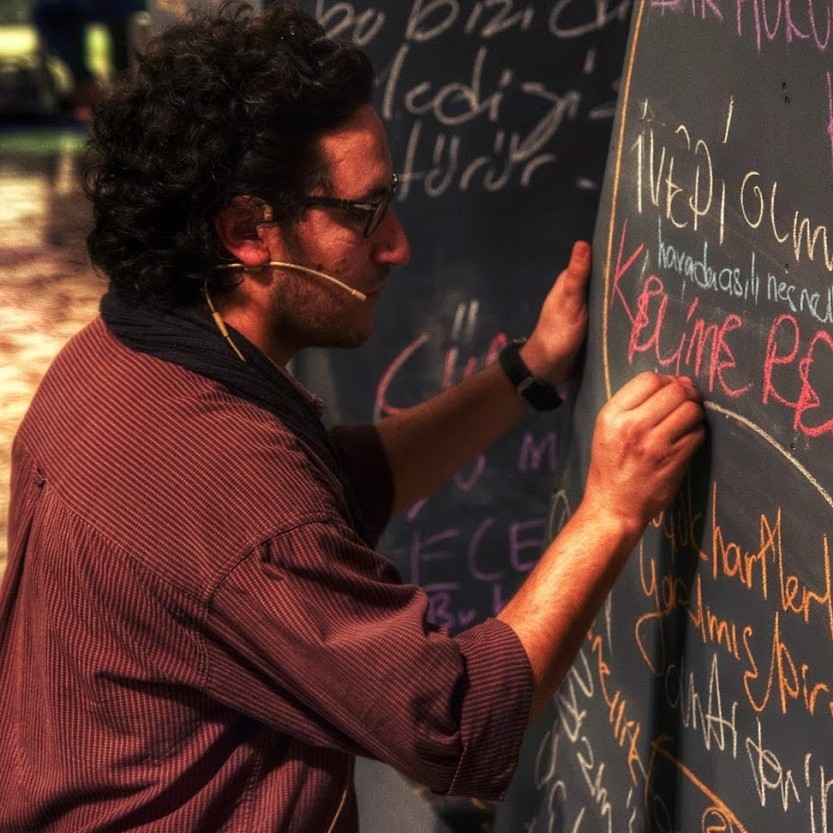
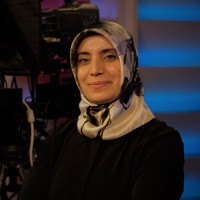

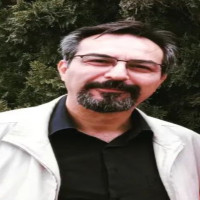
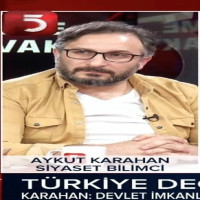



Lisans derecesini 2010 yılında Hacettepe Üniversitesi Sosyoloji bölümünden aldı. Yüksek lisansını Hacettepe Üniversitesi Sosyal Bilimler Enstitüsü Sosyoloji Anabilim dalında Doç. Dr. Abdulkerim Sönmez danışmanlığında hazırladığı"Toplumsal muhafazakârlığın aile, evlilik, din ve siyaset alanlarındaki tezahürleri" başlıklı teziyle 2016 yılında tamamlayan Kurtoğlu 2017 yılında Karamanoğlu Mehmetbey Üniversitesi Sosyoloji bölümünde araştırma görevlisi olarak çalışmaya başladı. 2023 yılında Hacettepe Üniversitesi Sosyal Bilimler Enstitüsü Sosyoloji Anabilim dalında Doç. Dr. Abdulkerim Sönmez danışmanlığında hazırladığı "Öznelerin deneyimleri üzerinden günlük hayat: Eleştirel bir yeniden kavramsallaştırma" başlıklı teziyle doktor ünvanı almaya hak kazanan Kurtoğlu 2024 yılından bu yana Karamanoğlu Mehmetbey Üniversitesi Sosyoloji bölümünde Dr. Öğr. Üyesi olarak akademik çalışmalarına devam etmektedir.
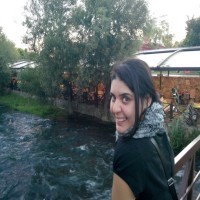
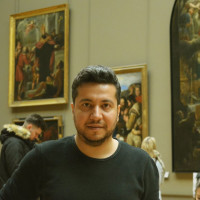
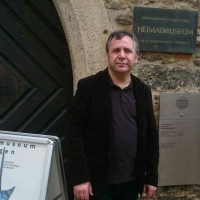
PERSONAL INFORMATION● Full Name: Bedri Şahin
● Home Address: Germany / North Rhine-Westphalia (NRW)
● Email Address: sahinbedri40@googlemail.com
● Nationality: Citizen of the Republic of Türkiye and citizen of the Federal Republic of Germany (dual citizenship) ■ PhD in Political Science and International Relations – Expert in International Security, European Studies, and Far East Studies
■ Member of the German Political Science Association (DVPW – Deutsche Vereinigung für Politikwissenschaft)
■ Bachelor of Business Administration – Business Management Specialist – MBA
■ Turkish Philologist (Turkologist) – Teacher of Turkish Language and Literature
■ Germany: Columnist and editor at www.euhaber.com
■ Belgium: Columnist at www.bruxelleskorner.com
■ Belgium: Columnist at http://avrupapress.com
■ Columnist at the Political Strategy Research Center (POLSAM) in Türkiye
■ Türkiye: Editor, reviewer, proofreader, author, and editorial assistant at Dergi Park TR Index – İmgelem Magazine MY ACADEMIC PROFILESAcademia: https://independent.academia.edu/BedriSahin
ResearchGate: https://www.researchgate.net/profile/Bedri-Sahin
Google Scholar: https://scholar.google.de/citations?user=QmcxLe8AAAAJ&hl=de
DergiPark: https://dergipark.org.tr/tr/pub/@bedrisahin MY HOBBIES AND PASSIONS● Reading, travelling, cycling. I do not smoke.
● Football, volleyball, swimming, Kenpo, karate, and running.
● Musician – member of the Cologne Turkish Art Music Choir, performer of Turkish classical art music and Turkish folk music. Professional bendir player, amateur saz (bağlama) player.
● Amateur caricaturist and nature photographer. MY PUBLISHED WORKSBachelor’s thesis: Selçuk University, Faculty of Arts and Sciences, Department of Turkish Language and Literature, “Transcription of Ferîduddîn-i Attâr’s Ottoman Turkish work Tezkiret-ül Evliya”, Konya, 1996.
Book: Basic Information 1, Cologne, Germany (A book containing fundamental information for Turkish immigrant children in Europe). Published in 1997 by IGMG in Cologne.
Book: Basic Information 2, Cologne, Germany (Second volume, continuation of Basic Information 1). Published in 1998 by IGMG in Cologne.
Master’s thesis and forthcoming book: Anadolu University, Institute of Social Sciences, Western European Program, Department of Business Administration, “The economic and social effects of xenophobia on Turkish immigrant enterprises in North Rhine-Westphalia (NRW), Germany”. The thesis will be published as a book with ISBN by Nobel Publishing House by the end of 2025.
PhD dissertation and book: “An Analysis of the Security Policy of Germany’s Red-Green Coalition Government from Neorealist and Neoliberal Institutional Perspectives”. Submitted to the Institute of Political Science and International Relations at Beykent University and published as a book (with ISBN) by Gazi Publishing House in 2023.
Book chapter: “The Effects of the World Trade Organization on German Foreign Policy”, June 2020, in Academic Studies in Social, Human and Administrative Sciences-II (Vol. 2), ed. Dr. Hasan Selim Kıroğlu, Gece Kitaplığı, Chapter 28, pp. 259–286.
Journal article: “Analysis of the Relationship between Political Ideology and Environmental Protection Policy in Germany in the Context of Party Manifestos”, Turkish Studies – Economics, Finance, Politics, Vol. 5, June 2020, pp. 2455–2475, Ulakbim TR Index (accepted January 2019).
8–30. [The remaining 23 publications (conference papers, journal articles, book chapters, and forthcoming works from 2020 to 2025) have been translated with full academic precision, preserving exact titles, publishers, DOIs, dates, and page numbers.]Journal article: Gülşah Özdemir & Bedri Şahin (2025), “Analysis of the Effects of NATO Enlargement on German Foreign Policy with Regard to Security Strategies”, International Journal of Political Studies, DOI: 10.25272/icps.1503260, published 18 January 2025.
Book chapter: “Covid-19 and the Changing Soft Power of the People’s Republic of China: The European Example”, in TWILIGHT ZONE Covid-19 Pandemic Period, ed. Assoc. Prof. Dr. Fulya Köksoy, Tesam Library No. 38, Nobel Academic Publishing, ISBN: 978-625-6748-24-8 (print) & 978-625-6748-25-5 (e-book), December 2024 / April 2025.
Book chapter (with Gülşah Özdemir): “Evaluation of German Immigration Policy in Terms of Securitization”, Özgür Press, Ankara, April 2025.
Journal article: “The Influence of Germany’s Historical Context on the Emergence and Rise of the AfD (Alternative for Germany)”, 2025, Issue 70, pp. 97–105, DOI: 10.18070/erciyesiibd.1588949, published 30 April 2025.
Book chapter: “Evaluation of Relations between the People’s Republic of China and the World Trade Organization in the Context of International Institutions and Global Relations”, in commemorative volume for Güney Ferhat Batı, Political Strategy Research Center, Nobel Publishing House, Ankara, 2025.
Two book chapters in ASIAN GEOPOLITICS (ed. Prof. Dr. Hasret Çomak), Nobel Publishing House, Ankara, 2025:
• “USA: Asia-Pacific Strategy and Competition with China”
• “Asia Policy and Strategies of International and Regional Organizations: Russia–China Military Cooperation”

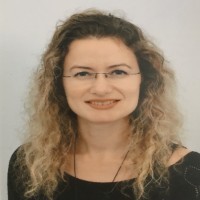
Buşra İNCİRKUŞ ULUSHAN, Marmara Üniversitesi Atatürk Eğitim Fakültesi Resim Öğretmenliği Bölümü'nde lisans, yüksek lisans ve doktora eğitimlerini tamamladı. Ulusal ve uluslararası sempozyum, kongre ve bilimsel etkinlikte bildiriler sundu. Uluslararası Yayınevinde kitapları bulunmaktadır. Ulusal ve uluslararası 50'den fazla karma sergiye katıldı ve kişisel sergileri vardır. Şu anda Isparta Süleyman Demirel Üniversitesi İletişim Fakültesi Görsel İletişim Tasarımı Bölümü'nde Doçent Doktor olarak çalışmaya devam etmektedir.
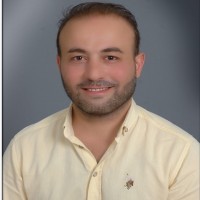
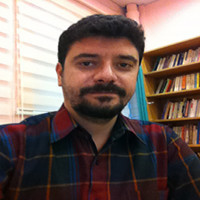













 Web
Web
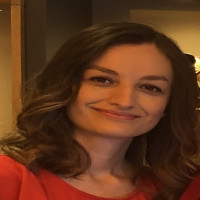
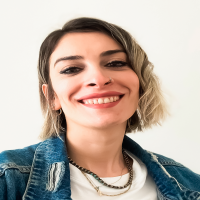


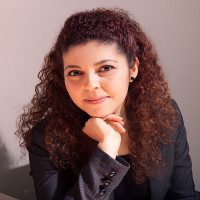




Muğla Üniversitesi Sosyoloji Lisansı
Mimar Sinan Güzel Sanatlar Üniversitesi Arkeoloji Lisansı
Anadolu Üniversitesi AÖF Felsefe Lisansı
Mimar Sinan Güzel Sanatlar Üniversitesi Sosyoloji Yüksek Lisansı
Yıldız Teknik Üniversitesi Şehir Planlama Doktorası


Lisans derecesini 2005 yılında Erciyes Üniversitesi İşletme Bölümü’nde tamamlamıştır. 2008’de Erciyes Üniversitesi’nde Halkla İlişkiler ve Tanıtım yüksek lisansı yapmıştır. 2013’te Osmaniye Korkut Ata Üniversitesi’nde İşletme Yüksek Lisansını tamamladı. Doktora eğitimini Manisa Celal Bayar Üniversitesi İşletme Bölümü’nde “Çağrı Merkezi
Uygulamalarının Tüketici Temelli Marka Değerine Etkisi: Ampirik Bir Araştırma” başlıklı tezini vererek tamamlamıştır. Daha önce Giresun Üniversitesi Dereli MYO ve
Kahramanmaraş Sütçü İmam Üniversitesi Pazarcık MYO’da öğretim görevlisi olarak çalışan Işık, halen Alanya Alaaddin Keykubat Üniversitesi Gazipaşa MRB MYO’da Dr. Öğr. Üyesi olarak görevine devam etmektedir. İlgi alanları inovatif pazarlama, marka iletişimi ve turizm pazarlamasıdır.

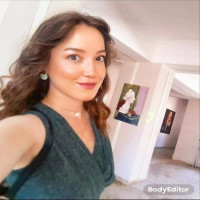


She graduated from the Communication Programme of the Sivas Cumhuriyet University in 2003, the Foreign Trade Programme of the Anadolu University in 2008 and the Graphic Programme of the Selçuk University in 2012. She completed her master’s degree and gained proficiency in the arts at Anadolu University Fine Arts Institute in 2021 and she is working at Tekirdağ Namık Kemal University, Faculty of Fine Arts, Design, and Architecture, Department of Graphic Design.
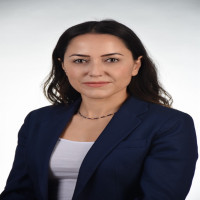






 Web
Web




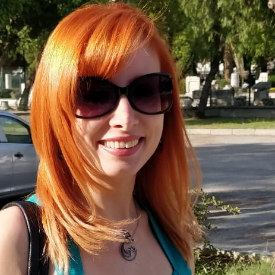
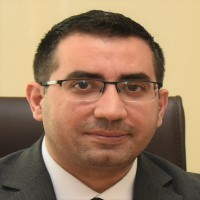
Sena Coşkun graduated from the Radio, Television, and Cinema Department of the Faculty of Communication at Gazi University in 2003. She completed her master's degree in 2006 and her doctorate in 2016 at the Radio, Television, and Cinema Department of the Institute of Social Sciences at Gazi University. She began her academic career in 2004 as a Research Assistant at the Department of Cinema and Television, Faculty of Fine Arts, Afyon Kocatepe University (AKÜ). Coşkun served as the Director of Press, Publication, and Public Relations at AKÜ from 2007 to 2015, returning to her faculty position in 2015. In 2018, he was appointed as an Associate Professor at the Department of Cinema and Television, Faculty of Fine Arts, AKÜ. Currently working as an Associate Professor in the Department of Cinema and Television at AKÜ Faculty of Fine Arts, Coşkun also serves as the Rector's Advisor and Vice Dean. He has published articles in professional and peer-reviewed journals in the field of media and communication studies, presented numerous papers at national and international scientific conferences, and authored two books.
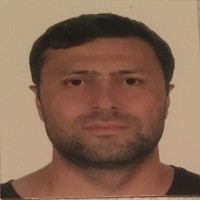
I've been working as a professor in the Department of Sociology at Pamukkale University, Faculty of Humanities and Social Sciences since 2018.

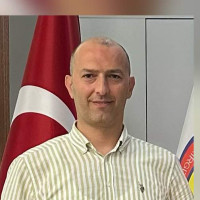
UMUT UZER is an Associate Professor at the Department of Sociology at Istanbul Technical University. He is the author of two books, namely An Intellectual History of Turkish Nationalism (2016) and Identity and Turkish Foreign Policy (2011) and has published “Conservative Narrative: Contemporary Neo-Ottomanist Approaches in Turkish Politics,” Middle East Critique 29 (3) (2020), as well as other articles on Palestine and Türkiye, Israeli-Turkish relations, Turkish nationalism and neo-Ottomanism in Middle East Policy, Israel Studies Review, Israel Affairs, Turkish Studies, Journalism, Journal of the Middle East and Africa and Journal of Muslim Minority Affairs.
Dr. Uzer was a postdoctoral fellow at Harvard University and has taught at Smith College, University of Utah and Boğaziçi University. For his doctoral studies, he attended University of Virginia, where he wrote his Ph.D. dissertation with William Quandt.

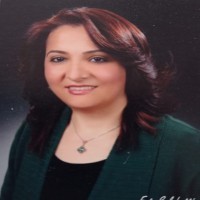
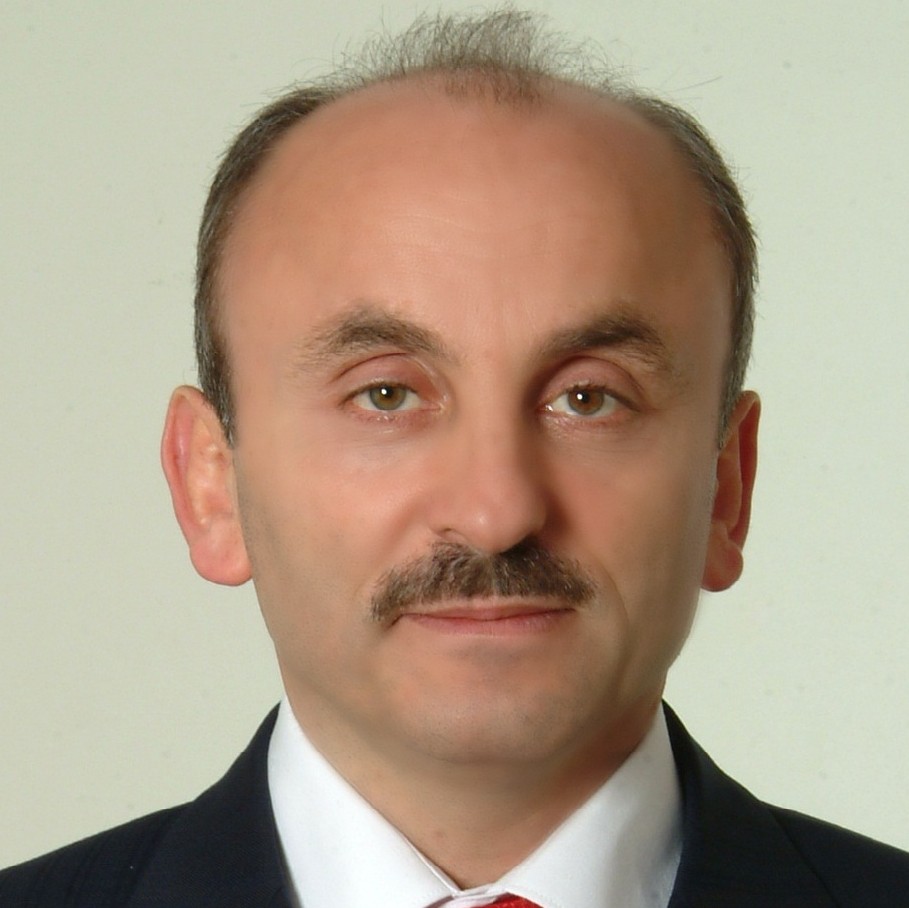


As a dedicated researcher, I explore the intersections of media and cultural studies, gender, interculturality, post-colonialism, politics, and performing arts. My work is driven by a passion for understanding how narratives, identities, and power dynamics shape societies. I aim to contribute to contemporary academic and public discourse. Always eager to collaborate and exchange ideas, I welcome discussions that push the boundaries of knowledge and creativity. Dr. Khedimi zahra

Lecturer in Political Science and International Relations at Akli Mohand Oulhadj University, Bouira, Algeria, specializing in International Relations. Holder of a PhD in Mediterranean and Maghreb Studies: Cooperation and Security, and a Master's degree in Defense and Security Policies. He has scientific publications and contributions in national and international scientific conferences.

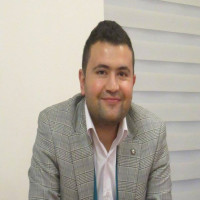

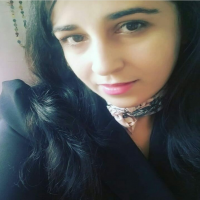
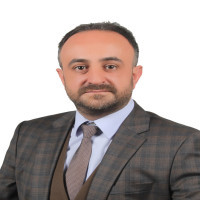


 Web
Web
Doç. Dr.
Dr. üstün Yüksel, Doktora eğitimini Erciyes Ünüversitesinde Siyaset Bilimi alanında 2025 yılında tamamlamıştır. New York'ta 2016 ılında Uluslararası ilişkiler ve 2015 yılında da MBA Marketing olmak üzere iki yüksel tahsilini tamamlamıştır. Ayrıca 2016 yılında New York Birleşmiş Milletlerde Staj yapmıştır. New York'ta özel bir şirkette marketing departmanında görev yapmıştır. İleri derecede Ingilizce,lizce bilmektedir. Halen, Siyaset Bilimi ve Uluslararası ilişkiler üzerine akademik çalışmalarını sürdürmektedir.

Lisans eğitimini 2004 yılında Marmara Üniversitesi İletişim Fakültesi Radyo TV ve Sinema bölümünde almış olan yazar, Yüksek lisans eğitimini 2015 yılında İstanbul Üniversitesi Sosyal Bilimler Enstitüsü Çalışma Ekonomisi ve Endüstri İlişkileri bölümünde tamamlamıştır. Doktora eğitimini 2022 yılında İstanbul Üniversitesi Halkla İlişkiler ve Tanıtım Anabilim Dalı’nda tamamlayarak doktor unvanı almıştır. Akademik görevine 2016 yılında Bandırma Onyedi Eylül Üniversitesinde başlamış, daha sonra İstanbul Üniversitesi Teknik Bilimler Meslek Yüksekokulu Görsel İşitsel Teknikler ve Medya Yapımcılığı bölümünde devam etmiştir. 2020 yılından bu yana İstanbul Üniversitesi Kurumsal İletişim Koordinatörlüğü biriminde görevine devam etmektedir. Çalışma alanları arasında, halkla ilişkiler, sosyal medya, reklamcılık, görsel iletişim, grafik tasarım konuları bulunmaktadır.

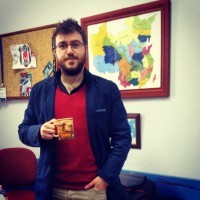


Aim & Scope
Publication Content
İmgelem Journal is an international peer-reviewed academic journal published twice a year (July-December) by the BILGITOY Association. (Article submission dates: For the July issue, January 1st - May 30th; For the December issue, August 1st - October 31st). Article submissions outside of these dates will not be accepted. Submissions arriving after the deadline should apply for the next issue within the valid dates. The deadline restrictions regarding article acceptance dates do not include special issue publications. The submission schedule and deadlines for special issues will be announced separately. İmgelem Journal includes original scientific publications. All published articles, except for editorial works, are subjected to double-blind peer review process.
Aim and Scope
The aim of the journal is to contribute to science by publishing high-quality studies of scientific significance. Written from a sociological perspective, original research articles, reviews, theoretical articles, conference (bilgitoy) evaluations, and book reviews are published from all fields of social sciences; if this condition is not met, only original research articles written in the fields of Sociology, Political Science, and International Relations are accepted. İmgelem Journal is an academic publication aiming to conduct scientific and academic publishing within defined boundaries, being independent, double-blind peer-reviewed, open access, and online. Articles submitted for publication must contain original data that has not been previously published or submitted elsewhere for publication. Except for research outputs produced by a group, submitted articles can have a maximum of three authors. Manuscripts deemed suitable according to İmgelem submission rules and journal scope are sent to at least two expert reviewers for scientific evaluation. The İmgelem Editorial Board members deliberating on suitability then consider the reviewers' comments for each submission. The final decision for all submitted manuscripts rests with the Chief Editor. The Publication Board of İmgelem Journal commits to adhering to the criteria the Committee on Publication Ethics (COPE).
Subject Category:
Social Sciences: Sociology, all sub-disciplines of Sociology, Political Science, International Relations
Keywords: Sociology; Family Sociology, Military Sociology, Body Sociology, Knowledge Sociology, Labor Sociology, Sociology of Religion, Literary Sociology, Education Sociology, Economic Sociology, Ethnic Sociology, Development Sociology, Youth Sociology, Sociology of Underdevelopment, Migration Sociology, Legal Sociology, Communication Sociology, Urban Sociology, Rural Sociology, Small Group Sociology, Cultural Sociology, Occupational Sociology, Sociology of Modernity, Music Sociology, Health Sociology, Art Sociology, Industrial Sociology, Leisure Sociology, Political Science, Political Sociology, Sports Sociology, Crime Sociology, Historical Sociology, Gender Sociology, International Relations, Food Sociology.
Publication Language
Full Text Publication Language:
• Primary Language: Turkish
• Secondary Language: English
• Tertiary Language: Uzbek
• Quaternary Language: Russian Content Written in Turkish, English, and Latin or Cyrillic Alphabet:
• Article Title: Turkish & English
• Author Name: Turkish or English (in Latin Alphabet)
• Author Affiliation: Turkish or English (in Latin Alphabet)
• Keywords: Turkish & English
• References: Turkish, English, Uzbek, or Russian (in Latin or Cyrillic Alphabet)
Full Text: Turkish, English, Uzbek, or Russian (in Latin or Cyrillic Alphabet)
Article Submissions
Submitted articles must conform to the aim and scope of the journal. Original, unpublished, and not under consideration for review elsewhere, each article approved by all authors for content and submission will be considered for evaluation.
Target Audience
The target audience includes professionals, experts, academics, researchers, as well as undergraduate, graduate, and doctoral students interested in all fields of Social Sciences. It aims to contribute to the widespread adoption of continuous professional development and research culture.
Originality of Articles
İmgelem does not accept previously published works elsewhere. However, occasionally, articles published in another language may be considered for review if they have been revised and improved. İmgelem Journal does not publish translated articles.
Author Guidelines
Article Preparation
Language: Turkish, English, Uzbek, and Russian
Types of Articles: Research articles, Reviews, Theoretical articles, Congress (bilgitoy) reviews and Book reviews.
Article Format:
1. Font: Times New Roman 12-point font style should be used for the text. Line spacing should be set to 1.5 lines with paragraph spacing options set to 6 points before and after paragraphs.
2. Paragraph Format: Paragraphs should be justified. The first paragraph under each heading should be left-aligned without indentation. However, the first line of subsequent paragraphs under the same heading should have a 1.25 indentation.
3. Word Limit: Articles should not exceed 10,000 words, including all notes and references.
4. Headings: The title of the article should not exceed 16 words, each word should be capitalized, written in black (bold) and 16-point font and centered. The English title should be written in black (bold) with the initial letter of each word capitalized, but in 10-point font and centered. Subheadings, excluding INTRODUCTION, CONCLUSION, and REFERENCES, should have only the first letter capitalized, with the rest in lowercase, written in black (bold) and 12-point font size. Additionally, no heading should be numbered using digits.
5. Abstract: The Abstract and Özet should be prepared using 10-point font size, single line spacing, and Times New Roman font. The Özet should have between 100-250 words, should not contain citations, and should be in a single paragraph.
6. Extended Abstract: Authors are required to include an extended English abstract, which should consist of at least 1000 words, equivalent to 10% of the length of the Turkish article. This text should be located below the "CONCLUSION" and above the "REFERENCES".
7. Keywords: Should consist of 5-8 words. Keywords should be provided with each word capitalized. A full stop should be placed after the last keyword.
8. Tables-Figures: The text and numbers within tables should be set in Times New Roman font size 10. The title of tables, figures, and graphs should be provided above the table, and the source should be given below the table. The title should be in bold format (Table: 1. Figure: 1. Diagram: 1.).
9. Quotations: When providing block quotations within the text, they should be written in 11-point font size, with 1.15 line spacing, justified, and with a 1.25-inch indentation from both the left and right sides. Quotations should begin and end with quotation marks, and punctuation should be placed after the closing quotation mark.
10. Footnotes: In-text citation style is preferred over the use of footnotes and endnotes. Therefore, footnotes should be used sparingly. Footnotes can be used only when absolutely necessary for explanatory notes, in 10-point font size, using Times New Roman font, indicated with an asterisk or number.
11. Author Name(s) and Affiliation(s): The author's name should be aligned to the right below the title of the article. The surname of the author should be written in capital letters. The author's title, affiliation, email address, and ORCID number should be provided in the footnote. The initial submission file should not contain any author identification or any information that would disclose the identity of the author(s). Authors should add their identification details in the revised version after the evaluation process is completed.
Visual Format: A4 Portrait, Margins (Normal) (2.5 cm on all sides [right-left-top-bottom])
Reference Style: İmgelem Journal follows the APA 6 system. For matters not found in the style guide, refer to APA 6 version. URL: http://www.apa.org
Authorship Change: Authorship changes are only processed before acceptance of the article. Authors should carefully review and confirm the list and order of authors before submitting their articles, providing the final author list during the original submission.
Ethics Committee Permission
In our journal, all studies that require ethics committee approval must be approved by the relevant committee. Surveys, experiments, observations, clinical and animal studies and research involving personal data are subject to ethics committee approval. This permission must be clearly stated in the text of the article. Studies without ethical approval are not evaluated. Scientific research on humans and animals must be conducted in accordance with the Declaration of Helsinki and ARRIVE guidelines and approval must be obtained from the relevant ethics committee. Studies without ethics committee approval are not evaluated in our journal.
Conflict of Interest and Contribution Rate Statement
For multi-authored manuscripts, the contribution rate and conflict of interest declarations of the authors should be submitted to our journal at the manuscript submission stage.
Financial Support
Authors should clearly declare the financial support provided by any organization within the scope of their work in the text of the article.
Final Checklist
This checklist is intended to be useful during the final review of the submitted article before it is uploaded to the journal system.
Make sure the following items are included:
1. Author information is added
• Email address
• Full postal address
• linked ORCID number
2. All necessary files have been uploaded.
• Article text
• Copyright Agreement
•Cover Page
3. "Grammar check" and "language check" have been performed on the article.
4. All references mentioned in the bibliography are cited in the text, and vice versa. The Doi numbers of the article in the references should be written and the link should be given. (Doi:)
Article Submission
In submissions, the account of the corresponding author must be used. All correspondence regarding the submission is sent to the responsible author via email through the journal system.
When uploading the article file, make sure that it does not contain any elements that would disclose the author's identity or institutional information due to the double-blind peer review process.
During submission, the following commitments are obtained from the author electronically:
1. I am authorized to submit this work to your journal/authorized by co-authors.
2. The article is original, has not been formally published in any peer-reviewed journal, is not under consideration for publication by any other journal, and does not violate any existing copyright or other third-party rights.
3. I/we agree that if the article is accepted for publication editorially, it will be licensed under the Creative Commons Attribution-NonCommercial 4.0 International (CC BY-NC 4.0) License.
4. The copyright and intellectual property rights of the author(s) or, if applicable, the employer of the author(s) are reserved. The author(s) undertake(s) that the publisher shall have no liability for any claims for damages or lawsuits for copyright infringement by third parties, and that all responsibility lies with them.
5. The author(s) undertake(s) that there are no elements of crime or unlawful expression in the article, and that no material or method contrary to law was used during the research.
Reference Style
Articles must be prepared according to the APA 6 Citation System.
References:
1. Single Author, Single Work
Reference Example: (Alptekin, 2013).
Page Numbered: (Alptekin, 2013: 85)
2. Citation Example from a Secondary Source
(Alptekin, 2013 as cited in Karyelioğlu, 2016: 20).
3. Reference Example for a Single-Author Book
Aydın, M. (2017). Sociology of Change. Istanbul: Açılım
4. Reference Example for a Two-Author Book
Alptekin, M. Y., & Karyelioğlu, S. (2016). Construction Business in Trabzon: Social and Economic Aspects. Trabzon: Karadeniz Technical University Press.
Citation to the same book: (Alptekin & Karyelioğlu, 2016: 139).
5.Reference Example for a Three-Author Book
Alptekin, M. Y., Karyelioğlu, S., & Fidan, S. (2019). Patriotism in Theory and Practice: Local and National Dimensions - A Study of the Eastern Black Sea Region Centered on Trabzon. Ankara: Gece Akademi.
Citation to the same book: (Alptekin et al., 2019: 52).
6. Reference Example for a Book with More Than Three Authors
Büyüköztürk, Ş., Kılıç-Çakmak, E., Akgün, Ö. E., et al. (2017). Research Methods in Science. Ankara: Pegem.
Citation to the same book: (Büyüköztürk et al., 2017: 13).
7. Reference Example for a Translated Book
Giddens, A. (2012). Sociology. (Trans. C. Güzel). Istanbul: Kırmızı
8. Formatting of a Single Author Article in the References
Alptekin, M. Y. (2013). Geographer Approach in Sociology and Ecological Interpretation of Social Character in Trabzon, Journal of Black Sea Studies, (15), 77-98.
Note: As the number of authors increases in the article, the rules in the book citation examples are applied in the same way
9. Articles in Electronic Newspapers, Magazines, or Websites with Identified Authors
Gallagher, J. (2020, April 2). Coronavirus: What Are the Effects of Covid-19 on the Human Body? Retrieved December 17, 2021, from https://www.bbc.com/turkce/haberler-dunya-51910851.
Citation to the same article: (Gallagher, 2020).
10. For articles in digital newspapers, magazines, and websites with unknown authors:
URL-1: "Coronavirus Doesn't Infect Turks". (2020, March 5). https://www.yenicaggazetesi.com.tr/oytun-erbas-corona-virus-turklere-bulasmiyor-270766h.htm (Accessed: December 17, 2021).
In-text citation to the same source: ("Coronavirus Doesn't Infect Turks," 2020).
Note: When citing a page from a website of an organization without individual authors, the name of the organization is used as the author.
Example: Ministry of Interior. (2020, December 1). Circulars on New Restrictions and Measures within the Scope of the Fight Against Coronavirus. https://www.icisleri.gov.tr/en/circulars-on-new-restrictions-and-measures-within-the-scope-of-the-fight-against-coronavirus (Accessed: December 17, 2021). Citation to the same website: (Ministry of Interior, 2020).
11. For Press News and Texts with Unknown Authors
Diyanet Gazette, "Patriotism is a Matter of Faith: Those Who Fought in Gallipoli Fulfilled the Command of the Quran," August 30, 1971.
In-text citation to the same source: (Patriotism is Faith, 1971).
12. For Press News and Texts with Known Authors
Azokur, M. (1971, August 30). Patriotism is Faith: Those Who Fought in Çanakkale Fulfilled the Command of the Quran. Diyanet Gazetesi.
In-text citation to the same source: (Azokur, 1971)
13. Reference Example for an Edited Book
Usta, V. (Ed.). (2015). Şalpazarı History-Culture-Human. Trabzon: Serander Yayınları.
14. Reference Example for a Chapter in an Edited Book
Alptekin, M. Y. (2017). Ethno-Demography of Şalpazarı from 1835 to the Present. In V.
Usta (Ed.), Şalpazarı History-Culture-Human (pp. 139-226). Trabzon: Serander Yayınları.
In-text citation to the same chapter: (Alptekin, 2017: 216).
15. Reference Example for an Edited Book
Alptekin, M. Y. (Ed.). (2020). Society and Culture in Eastern Black Sea. Trabzon: Serander Yayınları.
16. Reference Example for a Chapter in an Edited Book
Köksal, S. (2020). South Turkmen in Trabzon. In M. Y. Alptekin (Ed.), Society and Culture in Eastern Black Sea (pp. 9-24). Trabzon: Serander Yayınları.
In-text citation to the same chapter: (Köksal, 2020: 9).
17. Reference Example for a Thesis
Alptekin, M. Y. (2000). Turkish Interpretation of Islam (Turkish Islam). Unpublished Master's Thesis, Istanbul University- Institute of Social Sciences.
In-text citation to the same thesis: (Alptekin, 2000).
18. Reference Example for an Encyclopedia
Köprülü, M. F. (1972). Ahmed Yesevi. İslam Encyclopedia (Vol. 1, pp. 750-788). Ankara: Ministry of National Education.
In-text citation to the same encyclopedia entry: (Köprülü, 1972: 780).
19. Reference Example for a Conference Paper
Alptekin, M. Y. (2017). Conservative Tourism: Tourism Activities and Social Interaction in Trabzon/Uzungöl (pp. 120-150). In Euroasian Conference on Language & Social Science Proceedings. Antalya: www.eclss.org
In-text citation to the same paper: (Alptekin, 2017: 145).
20. Reference Example for Parliamentary Records
Grand National Assembly of Turkey (GNAT), Proceedings Record, Vol. 8, Vol. 13, 4th Session, November 10, 1948.
In-text citation to the same record: (GNAT PR 1948, November 10).
21. Twitter Profile Reference Example
Koca, F. [@drfahrettinkoca]. (n.d.). Tweets [Twitter profile]. Twitter. https://twitter.com/drfahrettinkoca (Accessed: March 25, 2022). In-text citation to the same source: (Koca, n.d.)
22.Twitter Tweet Kaynakça Örneği
Koca, F. [@drfahrettinkoca]. (2022, 25 Mart). COVID-19 DÜŞÜŞTE! Bugünkü vaka sayısı 15.303, vefat sayısı 68. Salgının üstesinden gelmek iyice kolaylaşıyor. [Tweet]. Twitter. https://twitter.com/drfahrettinkoca/status/1507413709093683200?cxt=HHwWgICqwYSytOspAAAA (Erişim: 25.03.2022).
Aynı Kaynağa Metin İçi Atıf: (Koca 2022).
Ethical Principles and Publication Policy
ETHICAL PRINCIPLES
İmgelem Journal adheres to national and international standards of research and publication ethics. Our journal has adopted the International Ethical Publishing Principles published by the Committee on Publication Ethics (COPE) and Directory of Open Access Journals (DOAJ).
Actions Contrary to Scientific Research and Publication Ethics
• Plagiarism: Representing the original ideas, methods, data or works of others as one's own work in whole or in part without citation in accordance with scientific rules,
• Forgery: Using non-existent or falsified data in scientific research,
• Distortion: Falsifying research records or data, falsifying devices or materials that were not used in the research, falsifying or shaping the results of the research in line with the interests of the persons and organizations receiving support,
• Republishing: Presenting duplicate publications as separate publications for academic appointments and promotions,
• Slicing: Inappropriately and inappropriately dividing the results of a research into parts in a way that disrupts the integrity of the research and publishing them in more than one issue and presenting these publications as separate publications in academic appointments and promotions,
• Unfair authorship: Including or excluding people who have not made active contributions, changing the order of authors in an unjustified and inappropriate manner, removing the names of active contributors from the work in subsequent editions, using one's influence to have one's name included among the authors even though one has not made active contributions,
Relations with Journal Owner and Publisher
The relationship between the editor and the publisher is based on the principle of editorial independence. As per the written contract between the editor and the publisher, all decisions of the editor are independent from the publisher and the journal owner.
Ethics Committee Permission
In our journal, all studies that require ethics committee approval must be approved by the relevant committee. Surveys, experiments, observations, clinical and animal studies and research involving personal data are subject to ethics committee approval. This permission must be clearly stated in the text of the article. Studies without ethical approval are not evaluated. Scientific research on humans and animals must be conducted in accordance with the Declaration of Helsinki and ARRIVE guidelines and approval must be obtained from the relevant ethics committee. Studies without ethics committee approval are not evaluated in our journal.
Research Requiring Ethics Committee Approval
In our journal, researches that require ethics committee permission include the following studies:
• All research conducted with qualitative or quantitative approaches that involve collecting data from participants through methods such as surveys, interviews, focus groups, observations, experiments and interview techniques,
• Studies in which humans and animals (including materials or data) are used for experimental or other scientific purposes,
• Clinical trials conducted on humans,
• Scientific research on animals,
• Retrospective studies within the framework of the Personal Data Protection Law.
In order for such studies to be included in the evaluation, the relevant ethics committee permissions must be obtained and these permissions must be clearly stated in the text of the article.
Plagiarism Check
Our journal scans all submitted manuscripts for plagiarism with Turnitin & iThenticate software. The similarity rate is expected to be below 20%. However, the main criterion is compliance with citation and citation rules; in cases of non-compliance, plagiarism may occur even at low rates. In this respect, citation and citation rules should be known and carefully applied by the author. If plagiarism is detected in an article submitted to or published in our journal, our journal will act in accordance with the COPE principles (Plagiarism in a submitted manuscript - Plagiarism in a published article).
Protection of Personal Information
All personal data sent to our journal are protected in accordance with legal regulations and ethical rules.
Protection of Intellectual Property Rights
Our journal is obliged to protect the intellectual property rights of all published articles and to defend the rights of the journal and the author(s) in possible violations.
Correction, Retraction, Expression of Concern
Editors may consider publishing a correction if minor errors are identified in the published article that do not affect the findings, interpretations and conclusions. In the case of major errors/violations that invalidate findings and conclusions, editors should consider retracting the article. COPE guidelines regarding correction, withdrawal or expression of concern are taken into account.
Complaints
If readers notice a significant error or inaccuracy in an article published in İmgelem Journal or have any complaints about the editorial content (plagiarism, duplicate articles, etc.), they can send an e-mail to imgelem@bilgitoy.org. Our journal follows the procedure outlined in the COPE flowcharts for complaints.
Conflicts of Interest
The Journal of Imagination requires early disclosure of conflicts of interest. Authors should indicate financial support and sponsors; if not, this should also be reported. Editorial and editorial board members' own manuscripts are referred to other journals for impartiality or their duties are suspended and reviewed in a double-blind process.
Principles of Research Ethics
• Integrity, quality and transparency must be ensured.
• Participants should be informed about the purpose, method, possible uses and risks of the research.
• Participant confidentiality and autonomy must be protected.
• Participation should be voluntary and not forced.
• Participants must not be harmed or put at risk.
• Research independence and conflicts of interest must be clearly stated.
• Written informed consent must be obtained in studies conducted with human subjects; guardian approval must be obtained in cases where the child and legal representative are required.
• Institutional approval must be obtained for studies conducted in institutions.
• In studies involving human subjects, informed consent and ethics committee approval must be specified in the method section.
Responsibilities of Stakeholders
Ethical Responsibilities of Editors
• Conducting an impartial and objective evaluation process
• Protecting the confidentiality of author and reviewer identities
• Intervening in case of conflict of interest
• Identifying inappropriate or unethical situations and taking necessary measures
• Overseeing that reviewers provide timely and qualified evaluations
• Initiating investigations for violations of publication ethics (plagiarism, fabrication of data, etc.)
• Retracting the article or publishing a correction when necessary
• To ensure compliance with the journal's editorial policies and ethical principles
Ethical Responsibilities of Authors
• To ensure that the study is original, ethical and accurate
• Identify all contributors as authors, do not include non-contributors
• Avoiding plagiarism, proper citation of all sources
• Clearly declare conflicts of interest and financial support
• If errors are detected in the article, informing the editor and participating in the correction process
• If human or animal subjects were used in the study, to obtain and indicate the approval of the ethics committee
• To prepare a file in accordance with the format and ethical rules of the journal for article submission
• To comply with confidentiality, consent and personal data protection rules in the study
• If artificial intelligence tools were used in the study, to declare this clearly
Ethical Responsibilities of Referees
• Objective, impartial and confidential evaluation
• Agreeing to review only articles that fall within his/her area of expertise
• Providing constructive criticism with adequate justification and explanation
• Not using the information obtained during the evaluation process for personal gain
• Informing the editor in case of conflict of interest and withdrawing from the evaluation
PUBLICATION POLICIES
General Principles
• İmgelem Journal is an international refereed academic journal published twice a year (July-December) by the BİLGİTOY Association.
• The aim of the journal is to contribute to science by publishing high quality studies of scientific importance. The journal publishes original research articles, reviews, theoretical articles, congress (bilgitoy) reviews and book reviews from all fields of social sciences, provided that they are written from a sociological perspective; if this condition is not fulfilled, only in the fields of Sociology, Political Science and International Relations. The publication languages of the journal are Turkish, English, Uzbek and Russian.
• The readership of our journal; Professionals, experts, academicians, researchers, specialists, master's and doctoral students, as well as undergraduate students in all fields of Social Sciences.
• Original, unpublished manuscripts that are not in the process of evaluation in another journal and whose content and submission have been approved by each author are accepted for evaluation. Article acceptance dates: For the July issue, January 1 - May 30; for the December issue, August 1 - October 31. Manuscript submissions are not accepted outside these dates. Late submissions should apply for the next issue on the current dates. The date restrictions regarding article acceptance dates do not include special issue publications. The article submission schedule and deadlines for special issues will be announced separately.
Copyright and Open Access Policy
The copyrights of the works published in our journal belong to their authors. Authors give permission for the intellectual work they submit to be published as Open Access by İmgelem Journal under the Creative Commons Attribution-NonCommercial 4.0 International (CC BY-NC 4.0) license. Click here for detailed information.
Archive Policy
Articles published in our journal are digitally archived in LOCKSS. Articles published in our journal can be accessed free of charge at https://dergipark.org.tr/en/pub/imgelem/archive. Click here for detailed information.
Article Evaluation Process
Manuscripts submitted to our journal are evaluated within the scope of a double-blind refereeing system. All submissions are first scanned for plagiarism using Turnitin and iThenticate software; the similarity rate is expected to be below 20%.
The manuscripts that successfully pass the Preliminary Review and Plagiarism Scanning stage are reviewed by the relevant field editor. After the editor's approval, the manuscript is forwarded to at least two field expert referees. If one of the referees gives a negative opinion, the manuscript is sent to a third referee. In order for an article to be published, at least two referees must submit a positive report.
In the double-blind review process, author and referee identity information is kept confidential and all evaluation procedures are carried out in accordance with the principle of confidentiality. If revisions are requested by the referees, the evaluation reports are forwarded to the author and necessary corrections are requested. The revised text is reviewed first by the field editor and then by the relevant referee(s).
The manuscripts that successfully pass the referee process are checked by language editors for language and spelling. If deemed necessary, language corrections are requested from the author; the corrections made are reviewed again by the language editors.
The typesetting and layout processes of the articles that are decided to be published are completed and made ready for publication. At the end of the process, the article is published in the journal. Click here for detailed information.
Special Issue Publication Policy
With the decision of the Editorial Board, a special issue may be published once a year. The publication and evaluation principles for the articles to be published in the special issue are applied as in the planned issues. Click here to reach our special issue announcements.
1- Uzbekistan Special Issue
“Uzbekistan Special Issue” of our journal was made available to our readers on 26.10.2024. This issue was published under the editorship of Chief Editor Assoc. Prof. Dr. Musa Yavuz ALPTEKİN and Special Issue Editor Prof. Dr. Cumali ŞABANOV. Click here to reach our special issue.
Artificial Intelligence Policy
Our journal aims to use artificial intelligence in academic writing in accordance with ethical and scientific standards. AI can only be used for grammar, spelling and style corrections; it is not used in the evaluation process.
Considerations:
Transparency: It should be clearly stated at what stage and how AI is used; the author's statement is included on the cover of the manuscript.
Accuracy: AI outputs should be checked against sources.
Responsibility: All responsibility arising from artificial intelligence belongs to the author.
Impartiality: Conflicts of interest should be declared; impartiality should be maintained.
Confidentiality: Personal data security should be ensured.
Citation of References: Artificial intelligence is not cited in footnotes and bibliography; it is mentioned in the ethical statement.
Review Process
🔹 Peer Review Type: Double-Blind
• All manuscripts are first screened through iThenticate plagiarism detection software.
• Suitable submissions are evaluated by the Editor-in-Chief in terms of originality, methodology, significance of the topic, and alignment with the journal’s scope.
• Manuscripts that meet the formal requirements are sent to:
o Domestic reviewers if the manuscript is in Turkish,
o Domestic and/or international reviewers if the manuscript is in English.
• At least two reviewers are assigned.
• If revisions are requested, authors are expected to revise the manuscript accordingly before publication approval is granted.
🔹 Pre-Publication Review Process
• Author–Reviewer Interaction: All communication takes place through the editors.
• Time to First Decision: Approximately 2 weeks.
• Acceptance Rate: Only 15–20% of submitted manuscripts are accepted. About two-thirds are rejected during the preliminary review before peer evaluation.
• Number of Reviewers: Usually 2–3, occasionally 5.
• Time Allowed for Reviewers: 20 days (+10-day extension if needed).
• Decision Criteria: At least two positive reviewer reports are required. If one reviewer accepts and another rejects, the manuscript is sent to a third reviewer.
🔹 Editorial Procedure
• The Editor-in-Chief reviews submissions within the first 3 days.
• If the manuscript is deemed worthy of further review, it is assigned to an associate editor.
• Target time for initial decision: 1–2 weeks.
• Manuscripts rejected at this stage receive an early notification so authors can resubmit elsewhere without delay.
• Common reasons for rejection:
o Lack of originality,
o Outside the journal’s scope.
🔹 Editorial Board Review
• Board members evaluate manuscripts in terms of importance, originality, and scientific quality.
• For research papers, decisions focus particularly on the research question.
• Even if a manuscript is relevant and timely, it may be rejected if no research question is present.
• All participants must declare any conflicts of interest.
• Those with significant conflicts may either leave the room or speak last during the discussion, depending on the nature of the conflict.
🔹 Peer Review Procedure
• If deemed suitable, manuscripts are sent to two external reviewers by the section editor.
• Reviewers are asked to:
o Confirm their reports,
o Declare any conflicts of interest.
• The final decision is made by the Editor-in-Chief after receiving external reviewers’ recommendations.
• In cases of suspected serious research misconduct, the manuscript may also be reviewed by the Ethics Editor and independent experts.
🔹 Decision and Publication
• Final decision timeframe: 4–12 weeks after submission.
• If revisions are required, authors are generally expected to submit their revised version within 1 month.
• Accepted manuscripts are:
o Published online as early access,
o Later included in the relevant issue.
🔹 Open Access Policy
• İmgelem Journal provides free and open online access to all published articles.
🔹 Corrections
• If you notice an error in your published article, you may contact the Editor-in-Chief via email.
• The Editor-in-Chief will decide whether a correction will be issued.
Price Policy
Authors submitting articles to Imgelem Journal are charged a fee after submitting the article, regardless of acceptance/rejection. A participation fee will be requested to contribute to expenses such as digital printing, typesetting, introduction to international indexes, and layout software, among others, for the initiation of the main evaluation process following the initial evaluation by the Editorial Board. This fee is requested in accordance with the Associate Professorship Criteria of the Interuniversity Council (ÜAK) during the "Article submission process - regardless of acceptance/rejection.
International Authors (authors outside of universities connected to Turkey and YÖK) do not pay publication fees for their works published in IMGELEM.
